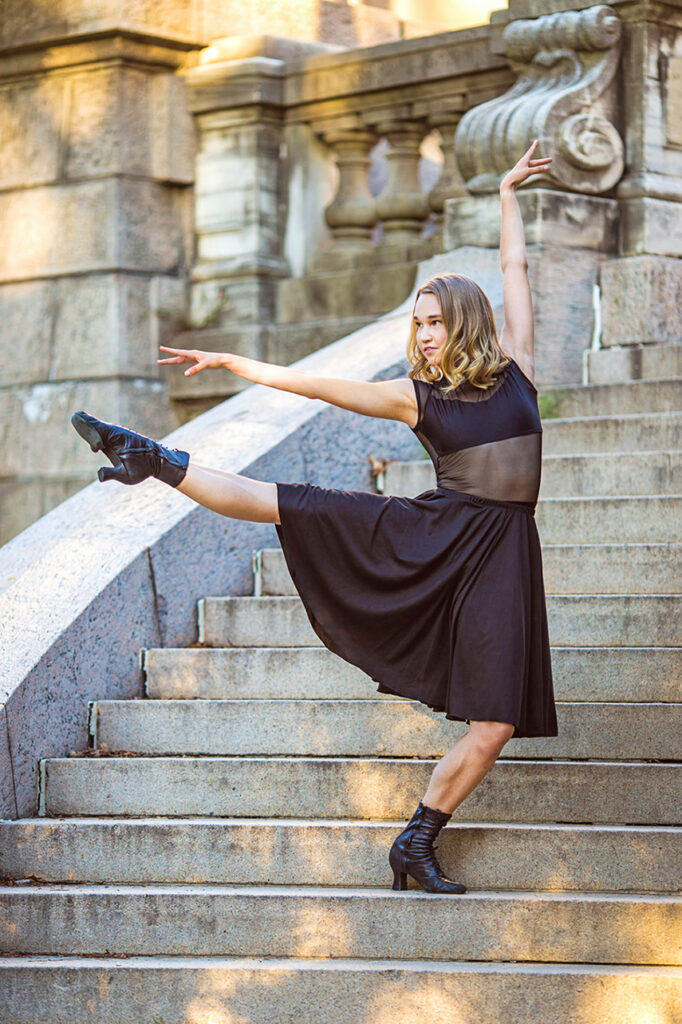I have been an anxious and perfectionist person for as long as I remember. I was devastated by an A-Minus on a test, I would stretch until I cry, I was reviewing a dance that I knew a million times consecutively before going on stage, and my brain has concocted worse endless scenarios. As a child, I did not understand what anxiety was; I also did not understand that he can reach a level that goes beyond the ability of a body to manage it.
I started dancing at the age of 3 and continued my graduation graduate. In 2014, I moved to New York to attend the Commercial Dance Program at Pace University. Shortly after and before my diploma, I reserved my first professional program Dancing as a Radio City Rockette. When I started the rehearsals of rockettes, I finished the university simultaneously and the maintenance of my status as a full -time student. While my anxiety and my perfectionism followed me from a very young age, I started to physically feel anxiety and depression during this period.
I started to have massive panic attacks and depression episodes that prevented me from getting out of bed. I started to fear hearings, performances and even dance lessons where people looked at me and thought I worsen. I was fighting for the days when my depression settled because I had lost the time that I could have used to train.
Often, as a dancer, you learn to go through. He is completed in work ethics talks and going ahead despite any kind of obstacle. “Put your head and work hard, leave it to the door, no excuses” do I hear constantly in different ways.
Quick advance to my sixth season dancing as a rockette: I had crossed everything and forcing myself to stuff my anxiety, at the bottom. We had moved from the rehearsal room and on the stage, preparing the show to open soon. Suddenly, and to my great confusion, I could not swallow. My body would simply not allow it. I couldn't eat and I had a hard time shooting sips of water. I also started to dissociate itself during rehearsals. I would start a dance number and slipped into what almost seemed like a subconsciousness. Suddenly, I would be at the end of the dance, with very little awareness of what had just happened. All this chaos sent me in panic attacks that I tried so hard to hide, but my ability to do it was to move away.
In the midst of what looked like an absolute tornado, there was this voice inside me which shouted on me to “stop”. At that time, and from a place deep in my intestine, I made the difficult, but immediate decision, to withdraw from the show. I knew something was wrong and that I needed help.
What I learned was that I was stuck in the combat or leakage mode of my body. When a person's body is activated in this way, some body processes are put in reserve so that the body concentrates its energies elsewhere, such as giving muscles an additional power to escape the danger. One of these interrupted processes is digestion, and when reserves, the esophagus contracts. If the body remains in combat or leak mode, the esophagus remains contracted and the brain does not register that there is enough space to swallow.
When it was explained to me, I felt a sudden relief. I felt seen and understood and not crazy. I was able to receive medication and therapy that helped my body recover. I started to learn ways to manage my perfectionism and my depression. If I did not go away, my body and my mind could not have healed and things would have progressed towards a very dangerous point.

The glorified mentality to go through difficult moments and not to abandon that we often learn as dancers was such an obstacle for me at the beginning because, when I moved away from my work, I felt like a failure. I felt embarrassing and shame. I wanted to hide. However, what I learned is that sometimes the unequivocal answer is to stop – and the stop does not mean failing.
Our mental and physical health is much more important than any job, any success or any opportunity. I teach so many young dancers now, and if I can transmit something, it is to normalize and speak openly about mental health. I always believe in working hard and developing the motivation of power through feelings of nerves and fatigue. This is what makes us athletes. But not when it compromises our mental health and our well-being.


